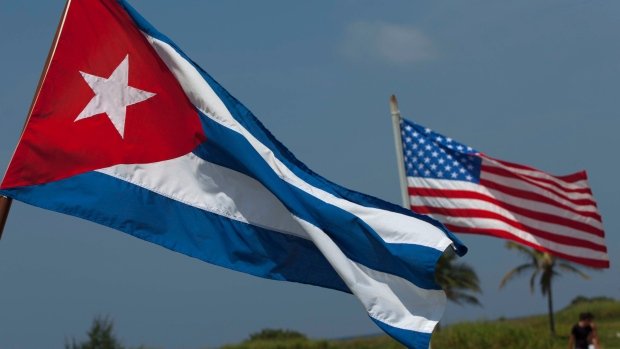Congressmen who are against President Barack Obama’s new Cuba policy have threatened to block his efforts to restore diplomatic relations after 50 years of hostility.
Florida Senator Marco Rubio promised on CNN to block the nomination of any US ambassador to Cuba.
Other anti-Castro legislators suggested Congress would removing funding for any normalized ties with the country.
US-Cuban ties have been frozen since the early 1960s – a policy of isolation Barack Obama condemned as a failure.
On December 17, President Barack Obama said it was time for a new approach.
As part of the deal, US contractor Alan Gross, 65, and an unnamed intelligence officer loyal to the US were released from Cuban prison in return for three Cubans held in the US.
The US will now seek to set up an embassy in Cuba, expand US visitors to Cuba, open up banking and increase caps on how much cash Cubans can post to relatives on to the island.
Only Congress has the power to end the full trade embargo, and with many Republicans deeply opposed to such a change, correspondents say it is unlikely to happen soon.
Among those opposed to restoring diplomatic relations was Democratic Senator Robert Menendez who said he was “deeply disappointed”.
“It’s a fallacy to believe that Cuba will reform because an American president opens his hands and the Castro brothers will suddenly unclench their fists.”
Fellow Senator Lindsey Graham, a Republican, said he would be among those trying to pass legislation to undercut funding for policy changes, including setting up an embassy.
“Normalizing relations with Cuba is a bad idea at a bad time,” tweeted Lindsey Graham, who will become chairman of a committee that determines state department funding in January.
Republican Senator Marco Rubio slammed the deal as “inexplicable”.
“Appeasing the Castro brothers will only cause other tyrants from Caracas to Tehran to Pyongyang to see that they can take advantage of President Obama’s naiveté during his final two years in office,” Marci Rubio said in a statement.
Marco Rubio told CNN on Wednesday he reserved the right “to do everything within the rules of the Senate to prevent that sort of individual from ever even coming up for a vote,” referring to the confirmation process for ambassadors in relation to Cuba.
Their objections mirror the concerns of some dissident Cubans living in the US.
“It is a betrayal. The talks are only going to benefit Cuba,” Carlos Munoz Fontanil said at a protest in Miami’s Calle Ocho.
Meanwhile, other world leaders have welcomed the move.
Leading the praise, Pope Francis sent “warm congratulations” to Barack Obama and Cuban President Raul Castro for overcoming “the difficulties which have marked their recent history”.
The announcement followed more than a year of secret talks in Canada and at the Vatican, directly involving the pontiff.
The EU, which is in the process of normalizing ties with Cuba, described the move as a “historical turning point”, while leaders meeting at a Latin America summit in Argentina broke into applause at the news.
Canadian PM Stephen Harper, whose country never broke off ties with Cuba, welcomed what he called the “overdue development”.
Officials said that Barack Obama and Raul Castro spoke by telephone on December 16 for nearly an hour – the first presidential-level talks between the two nations since Cuba’s 1959 revolution.
In exchange for Alan Gross, who was in poor health, and the unnamed intelligence officer, Washington released three members of the so-called “Cuban Five” who were serving lengthy sentences for espionage.
Alan Gross’s five-year imprisonment had undermined previous attempts to thaw diplomatic relations between the two countries.
[youtube pyw1iKif9Zs 650]
[youtube OyjzLdu3ggY 650]
